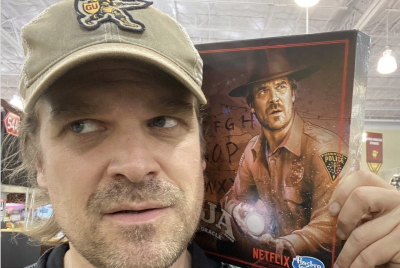Idaho 4 Film Blasted as 'Exploiting Trauma' for Commercial Gain, 'Disrespects the Memory' of Victims
Relatives say the project was made without their input and risks spreading misinformation while the criminal proceedings against suspect Bryan Kohberger remain ongoing.

A planned Lifetime dramatisation of the 2022 University of Idaho murders has been met with strong condemnation from victims' families, who say the project is exploitative, insensitive and risks retraumatising those still grieving.
Relatives of Kaylee Goncalves, one of the four students killed, have launched a petition urging the network to halt development, arguing that no film should be made while the criminal case remains unresolved.
The backlash, first reported by RadarOnline, has reignited debate over the ethics of true-crime productions created before a trial has concluded.
Families Say Lifetime Is Moving Too Fast, Ignoring Grief And Legal Process
The Lifetime project, which has not yet been formally announced, is reportedly in early development and expected to depict the murders of University of Idaho students Kaylee Goncalves, Madison Mogen, Xana Kernodle and Ethan Chapin.
According to RadarOnline, the Goncalves family has been especially vocal, with their petition accusing the network of 'turning the worst moments of our lives into entertainment.' The petition states that none of the families were consulted and warns that dramatising an ongoing case 'exploits our trauma and disrespects the memory of Kaylee, Madison, Xana and Ethan.'
Relatives worry that a fictionalised retelling could circulate misinformation or influence public perception before jurors are selected. A family friend told RadarOnline the project feels like 'a cash grab built on pain,' warning that producing a dramatic script before the trial 'risks interfering with the pursuit of justice.'
Lifetime has not responded to the criticism.
Legal Case Against Bryan Kohberger Still Unresolved
The controversy unfolds as legal proceedings against suspect Bryan Kohberger remain ongoing. Kohberger, a former criminology PhD student, was arrested in December 2022 and charged with four counts of first-degree murder. He has pleaded not guilty.
The trial has been repeatedly delayed due to pre-trial motions, evidence reviews and defence requests. Families say the uncertainty and slow pace only intensify their frustration with the proposed film, arguing that creative adaptations before evidence is presented in court could complicate jury selection.
Legal experts quoted by RadarOnline note that while true-crime dramatisations are not unlawful, early adaptations 'shape public memory long before a verdict is reached,' potentially blurring the line between fact and creative interpretation.
Petition Gains Public Momentum As Supporters Call For Sensitivity
The petition opposing the Lifetime film continues to attract signatures from Idaho residents, University of Idaho community members and true-crime viewers concerned about commercialising tragedy before the judicial process concludes.
Supporters posted comments such as:
'Let the families heal before Hollywood turns this into a spectacle.'
'This is not entertainment. These were real people.'
Many who signed argue the timing is disrespectful, noting that the families are still navigating grief more than two years after the killings.
True Crime Ethics Under Renewed Scrutiny
The controversy has revived broader concerns about the ethics of fast-tracked true-crime adaptations. Critics argue that early dramatisations sensationalise suffering and risk misrepresenting active cases, while others contend that they can highlight systemic failures. For the families of Kaylee, Madison, Xana and Ethan, however, the issue is clear: the project is unwelcome.
'We want accountability, truth and justice,' the petition states. 'Not a commercial product built on our heartbreak.'
Whether Lifetime will delay, alter or abandon the production remains unclear. For now, the families say they will continue speaking out to protect the memory of the four students whose deaths shocked the nation.
© Copyright IBTimes 2025. All rights reserved.




















